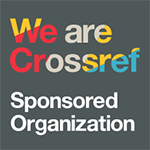State-of-the-art technologies of foreign language education of specialists in the sphere of life safety
DOI:
https://doi.org/10.33408/2519-237X.2021.5-2.251Keywords:
technology of foreign language education, professionally oriented teaching of a foreign language, life safety, didactic valueAbstract
Purpose. To analyze the existing approaches to educational technologies from the point of view of their applicability to teaching foreign languages to specialists, taking into account their professional significance. To select parameters that are relevant for each technology, taking into account linguistic, methodological and andragogical principles. To test and describe seven modern technologies for teaching a foreign language, aimed at professionals in the field of life safety. Determine the didactic value of each of the technologies.
Methods. Analysis of existing classifications of pedagogical technologies, their parametric characteristics, criteria for their reproductivity. Comparison of the described technologies in terms of their applicability to the adult audience. Approbation of seven technologies developed to train specialists in the practical use of a foreign language in the field of life safety. Generalization of the results of the application of technologies developed taking into account the professional interests of specialists in the process of their foreign language education.
Findings. Seven technologies of foreign language education of specialists in the field of life safety have been developed and classified according to nine parameters. Five technologies are predominantly social, that is, they are based on interpersonal communication, and two relate to information and communication technologies, that is, they are implemented in an electronic environment without direct interpersonal interaction. The didactic value of each of the technologies is determined, based on its classification parameters, which are relevant for specific conditions of application of this technology.
Application field of research. Each of the described technologies can be reproduced with a predictable result in the process of teaching a foreign language to specialists in the field of life safety. The proposed classification can be expanded after the development and testing of other copyrighted technologies.
References
Constructing Knowledge Societies: New Challenges for Tertiary Education – Washington – the World Bank 2002 – XXXI, 204 p. Direction and development. Pp. 7.
Borozdina N.A. Prezentatsii, elektronnye portfolio i blogfolio v inoyazychnom obrazovanii: metodicheskie printsipy i kriterii effektivnosti [Presentations, e-portfolios and blogfolios in foreign language education: methodological principles and performance criteria]. Proc. of the 4th international scientific and practical conference «Innovative technologies for teaching a foreign language at a university and school: the implementation of modern federal state educational standards» (Voronezh, 19–20 February, 2019): in 2 parts. Voronesh State University. Voronezh: Izdatel'skiy dom VGU. 2019. Part 1. Pp. 19–23. (rus)
Selevko G. K. Entsiklopediya obrazovatel'nykh tekhnologiy [Encyclopedia of educational technologies]: in 2 volumes. Moscow: NII shkol'nykh tekhnologiy, 2006. Vol. 1. 816 p. (rus)
Glinskiy A.A., Deyubenko S.V., Zaprudskiy N.I. [et al.] Sovremennye tekhnologii dlya obucheniya vzroslykh [Modern technologies for teaching adults]: educational and methodical manual. State Educational Institution «Academy of Postgraduate Education». Minsk: APO, 2012. 280 p. (rus)
Zmeev S.I. Andragogika: osnovy teorii, istorii i tekhnologii obucheniya vzroslykh [Andragogy: bases of theory, history and technology of instructing the adults]. Moscow: PER SE, 2007. 272 p. (rus)
[Auth]: Peter Clyne. Strasburg: Council of Europe Press, 1994. 68 p.
Aktual'nye voprosy podgotovki k professional'noy inoyazychnoy kommunikatsii [Topical issues of preparation for professional foreign language communication]. Proc. IV Intern. corresp. scientific-practical conf. «Dopolnitel'noe obrazovanie vzroslykh: problemy i perspektivy razvitiya», Minsk, March 23, 2018. University of Сivil Protection. Minsk: UCP, 2018. Pp. 137–176. (rus)
Problemy i perspektivy yazykovoy andragogiki [Problems and perspectives of linguistic andragogy]. Proc. V Intern. corresp. scientific-practical conf. «Dopolnitel'noe obrazovanie vzroslykh: problemy i perspektivy razvitiya», Minsk, February 28, 2019. University of Сivil Protection. Minsk: UCP, 2019. Pp. 164–193. (rus)
Problemy i perspektivy yazykovoy andragogiki [Problems and perspectives of linguistic andragogy]. Proc. VI Intern. corresp. scientific-practical conf. «Dopolnitel'noe obrazovanie vzroslykh: problemy i perspektivy razvitiya», Minsk, February 27, 2020. University of Сivil Protection. Minsk: UCP, 2020. Pp. 187–222. (rus)
Problemy i perspektivy yazykovoy andragogiki [Problems and perspectives of linguistic andragogy]. Proc. VII Intern. corresp. scientific-practical conf. «Dopolnitel'noe obrazovanie vzroslykh: problemy i perspektivy razvitiya», Minsk, February 25, 2021. University of Сivil Protection. Minsk: UCP, 2021. Pp. 91–122. (rus)
De Bono E. Shest' shlyap myshleniya [Six thinking hats]. St. Petersburg: Piter Pablishing, 1997. 256 p. (rus)
Published
How to Cite
License
Copyright (c) 2021 Kovaleva T.G., Dement'eva T.G.
CC «Attribution-NonCommercial» («Атрибуция — Некоммерческое использование») 4.0




















